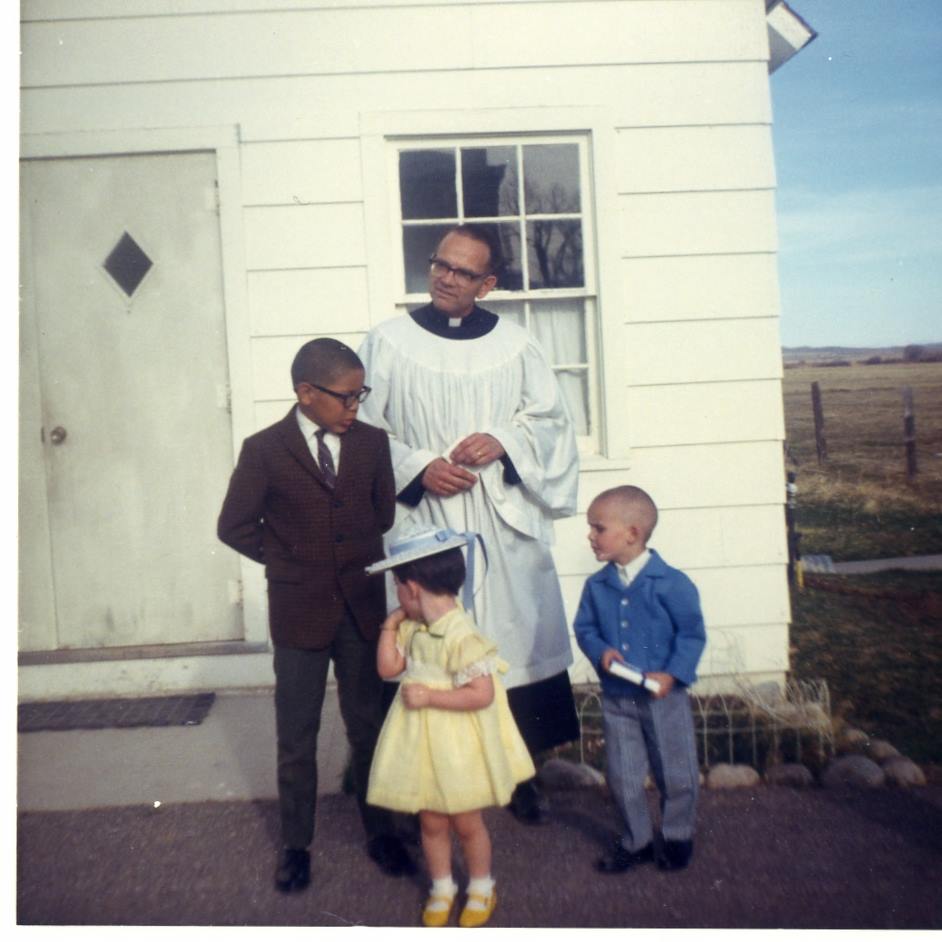The Bureau of Alcohol, Tobacco, Firearms and Explosives is offering a reward of up to $10,000 for information aiding in determining the cause of a fire in March at the Shoshone Episcopal Mission in Wyoming. Also known as the Robert’s Mission, it was established in the late 1800s as a Christian school by Reverend John Roberts, a Welsh missionary, with funds raised by Episcopal Bishop Ethelbert Talbot. The mission was assigned historical status in 1973 by the U.S. National Register of Historic Places.
Dry historical facts don’t do the place justice, though. The mission has a deep personal significance to me and to my roots in the Episcopal church.
[su_pullquote align=”right”]We, as Episcopalians, have the responsibility and the privilege to be the outstretched hand, the shoulder, and the champion of those who feel “less than” or unworthy. [/su_pullquote]
As a young woman in the late 1920s, my Grandma Iva worked on the mission. She would ride her horse miles and miles from Willow Creek and stay for days at a time to teach cooking skills to the young Native American students. If you have never been on the high plains of Wyoming, picture nothing but sagebrush and antelope for miles in every direction – now imagine being out there, alone, and you get an idea of her dedication.
I was baptized at Robert’s Mission after the “white” church in my hometown refused to baptize me because my parents were not married when I was born. My parents, a white girl from Lander and a mixed native boy from the reservation, were married on the Mission. We were not seen as “other”, as we frequently felt in town, but were welcomed as a family worthy of dignity, respect, and God’s love.
As I got older and could understand why I had been turned away from the town church, I remember being confused about how my mere existence could be such an affront to the priest and would trouble him so much that he would deny my baptism. It would be a lie to say it didn’t affect my self-esteem. It wasn’t until much later that I was able to objectively recognize that there wasn’t anything wrong with me – that I was simply a casualty in the societal norms of the time.
I sometimes think about the parallels of my experience of being denied and those in the LGBT community who are rejected by family, friends, and society for simply BEING. As a mother, my heart aches for young people who have convinced themselves they don’t matter, children who are desperate for inclusion and compassion.
We, as Episcopalians, have the responsibility and the privilege to be the outstretched hand, the shoulder, and the champion of those who feel “less than” or unworthy. The church has come such a long way but have we all fully embraced the changes and what those changes mean? Are we all committed to walking in God’s love?

